Khushi Shala – children thriving
Integrating children’s mental health across primary schools in Rajasthan, India
Khushi Shala – children thriving
Integrating children’s mental health across primary schools in Rajasthan, India
In partnership with the Kshamtalaya Foundation and the Rajasthan State Council of Education Research and Training, we have co-designed a school-based approach to fostering positive mental health and well-being skills among children in government schools across Rajasthan. The initiative includes evidence-based, community-centered, age-appropriate curricula and activities, along with high-quality experiential training and support for teachers.
Cultivating children’s mental health through teacher training and wellbeing classes allows them to build life skills at an important developmental age. These skills support their engagement in school, social development, and ability to respond to challenges with greater resilience and agency.
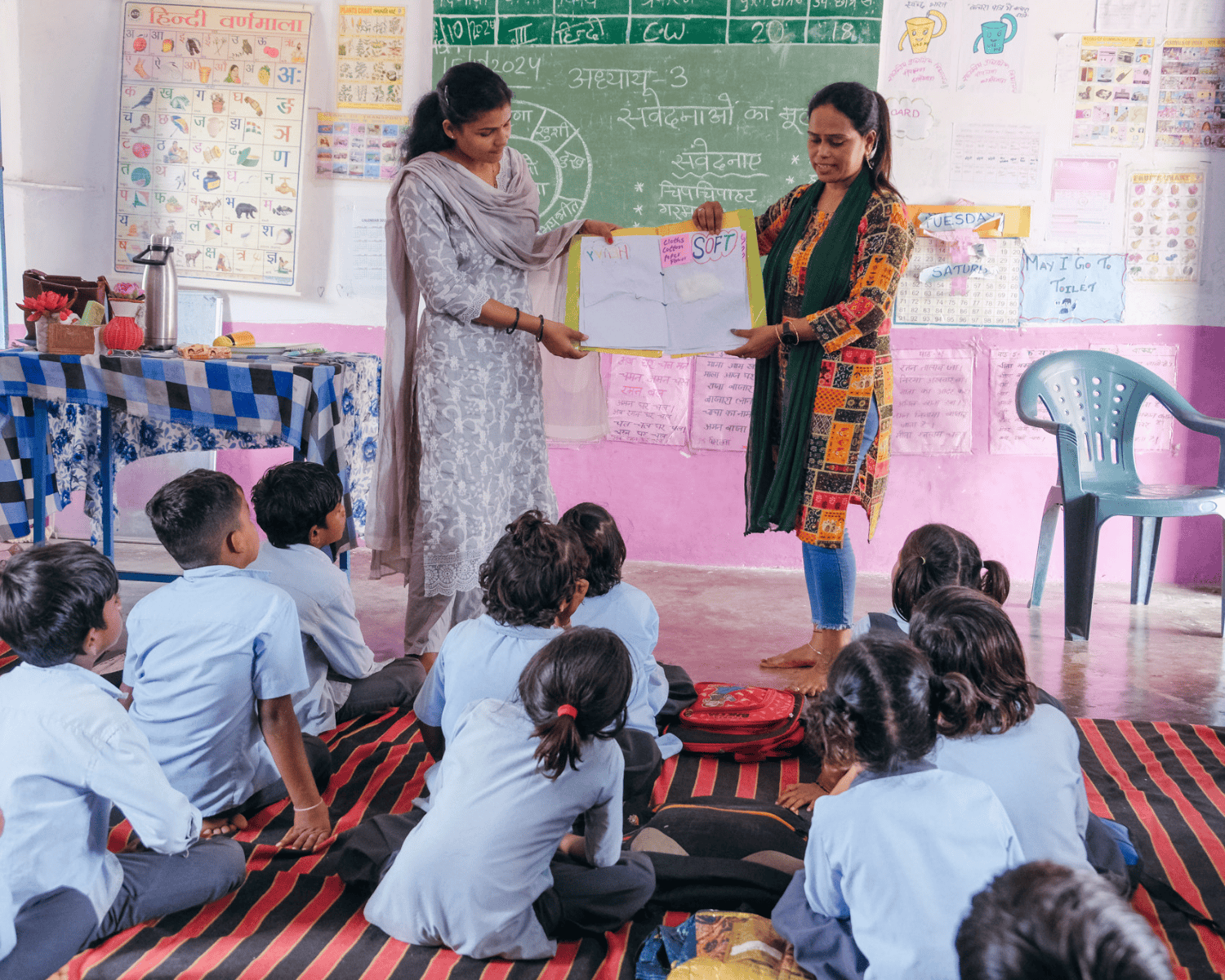
Scaling to reach 3.3 million+ children annually
In 2024, local facilitators collaborated with Kshamtalaya, RSCERT, and Brio to pilot this program so that further insights and ideas from children and educators can be integrated.
In 2025, we have launched the process of scaling this program statewide through the public school system: training and supporting teachers and school leaders to strengthen the mental health of 3.3 million+ children each year.
Scaling to reach 3.3 million+ children annually

In 2024, local facilitators collaborated with Kshamtalaya, RSCERT, and Brio to pilot this program so that further insights and ideas from children and educators can be integrated.
In 2025, we have launched the process of scaling this program statewide through the public school system: training and supporting teachers and school leaders to strengthen the mental health of 3.3 million+ children each year.
What is the community’s story?
What is the community’s story?
Since 2016, Kshamtalaya has been working with rural communities outside of Udaipur in Rajasthan. Working to improve government schools in collaboration with teachers, districts, parents, and children themselves, wellbeing has arisen as a critical need in the midst of environmental and social stressors. Many schools are run by only 1-2 teachers, and are responsible for the learning, growth, and care of young students throughout the day for at least 10 months per year.
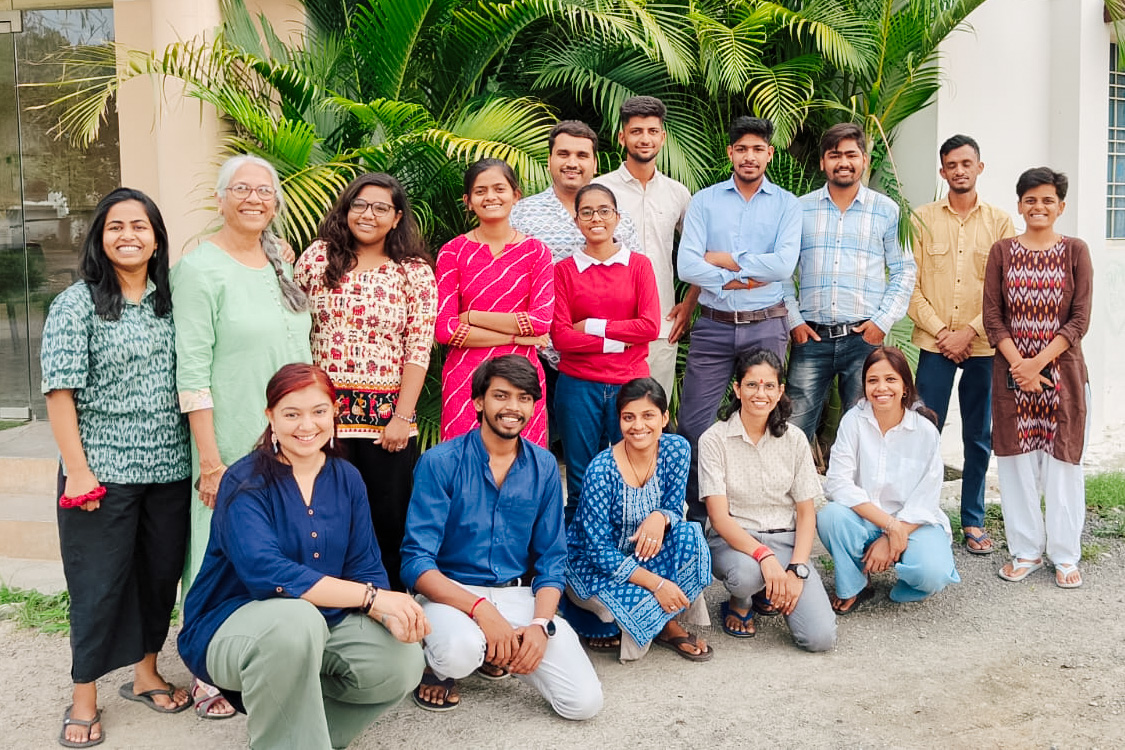
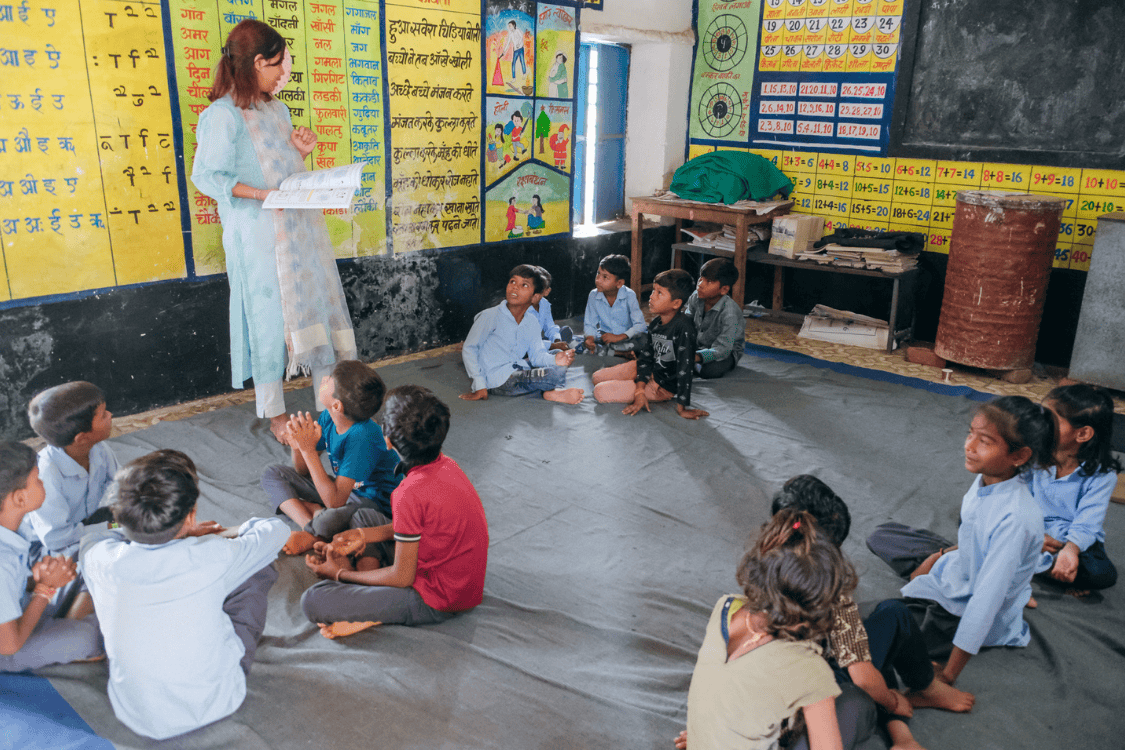


Wellbeing skills not only help children to engage at school with more curiosity and courage, but also support teachers in a stressful and often isolating job. The Covid pandemic only compounded many of the challenges in classrooms and communities that were already on the edge, increasing motivation to explore wellbeing as a pillar of education that must be integrated. Furthermore, the National Education Policy of 2020 addresses the need for skills that go beyond traditional literacy and numeracy, but also “social, ethical, and emotional capacities”.
What is our partnership about?
What is our partnership about?
Designing an effective approach to wellbeing learning and training
This multi-year curriculum writing project is in partnership with the Rajasthan State Council of Education Research and Training (RSCERT). Building on several research-driven models, the program is designed for grades 3-5. Children build skills that include present moment awareness, compassion for self and others, and values-driven action.
Utilizing stories, activities, and art, the program aims not only to teach about the skills but to help children understand them experientially. The lessons draw from daily life, including nature and community rhythms.
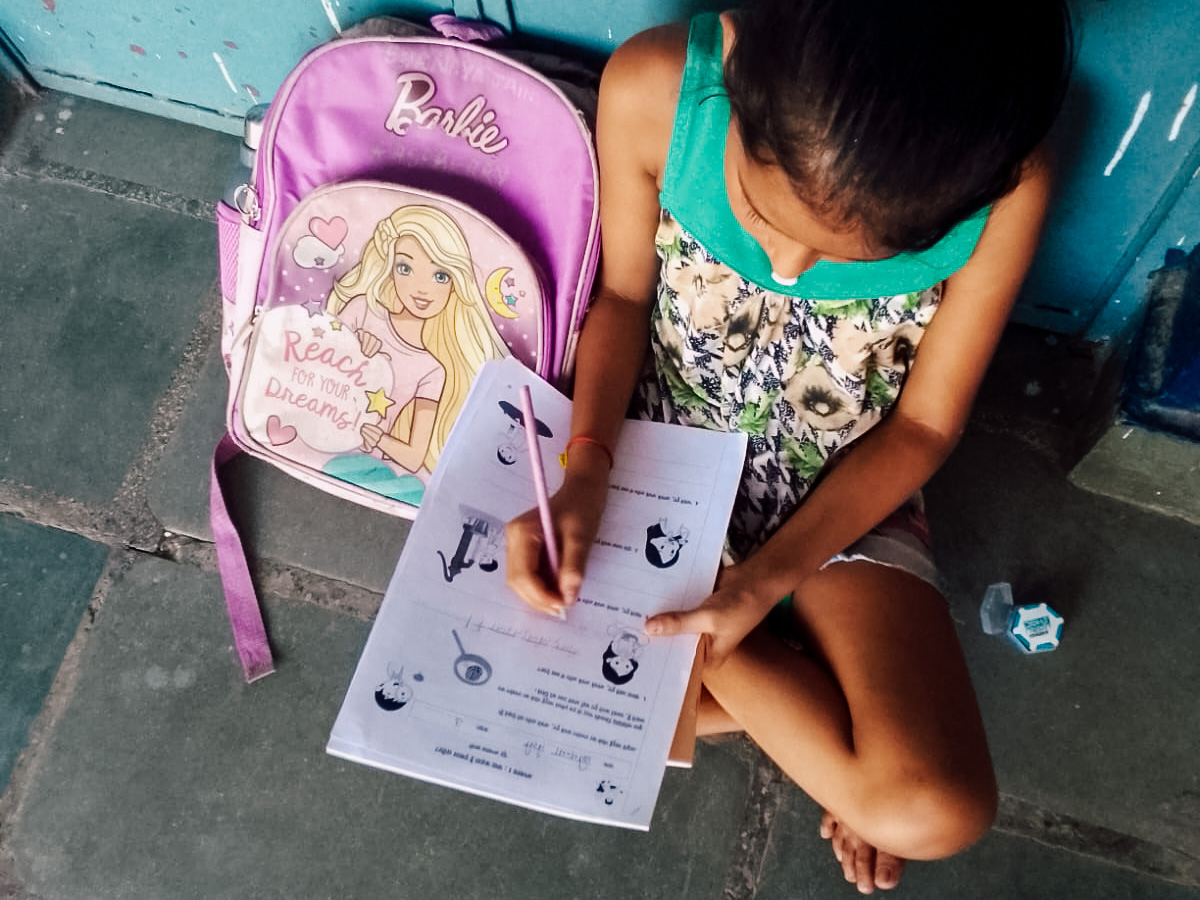
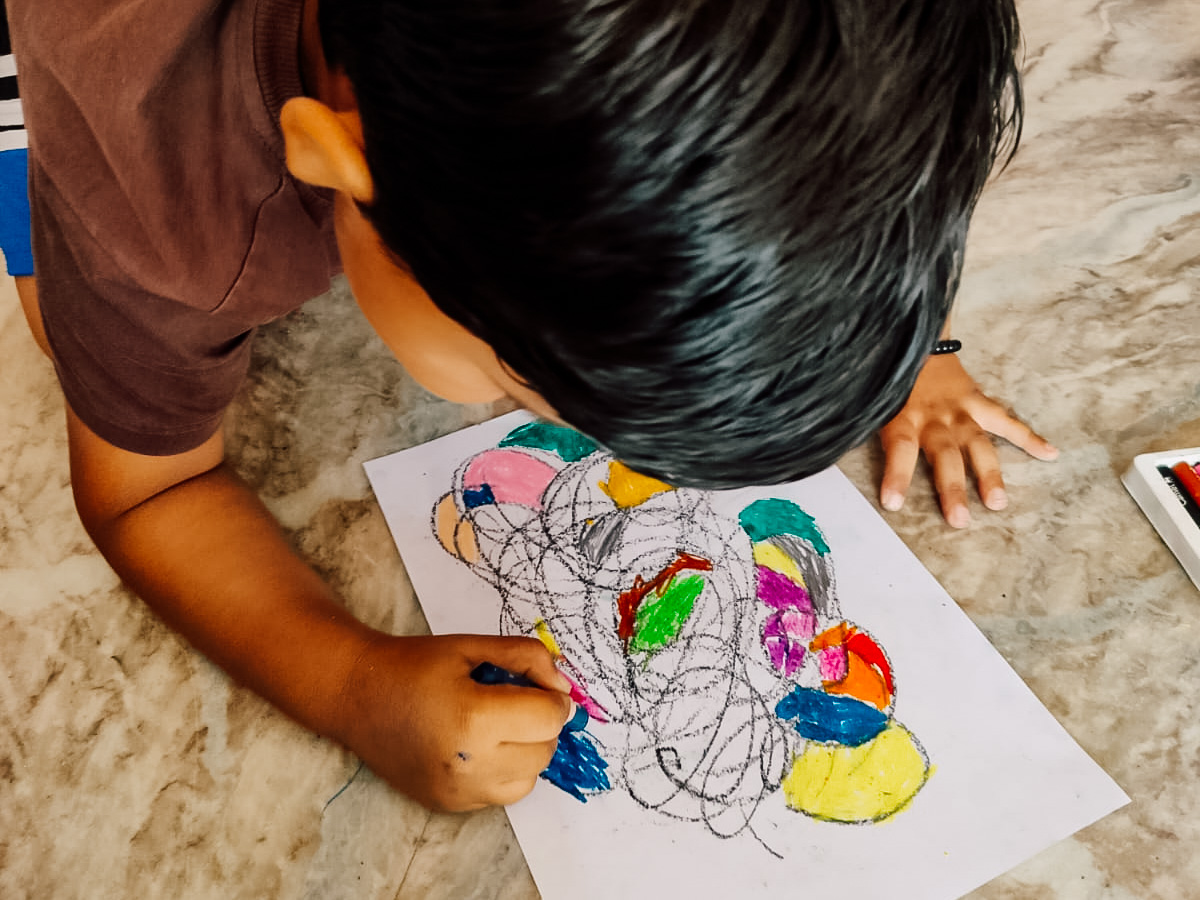


Each year, children will focus on a unit of mental health and wellbeing that fits their developmental stage:
1. Be Present: cultivating full awareness of body, emotions, and thoughts, as well as awareness of those around us.
2. Have Compassion: turning toward our experiences with compassion and offering compassion to others.
3. Do what matters: bringing all of our awareness and compassion to take small actions that align with our values and sense of what’s important.
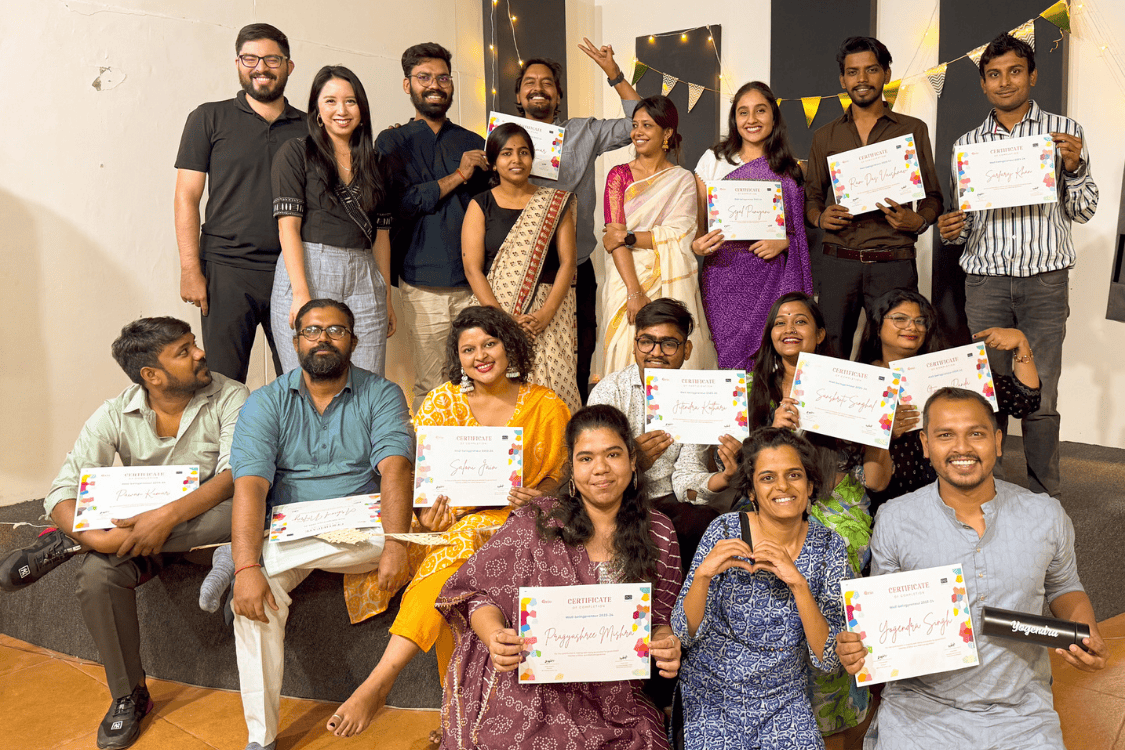
2024: Local facilitator training and pilot with educators
Local community members are collaborating with Kshamtalaya, Brio, and the RSCERT to pilot the curriculum with 120 educators, who offered further feedback on the feasibility and acceptability of the program. We also measured children’s responses to understand the impact of the program on children’s wellbeing in the classroom.
2024: Local facilitator training and pilot with educators

Local community members are collaborating with Kshamtalaya, Brio, and the RSCERT to pilot the curriculum with 120 educators, who offered further feedback on the feasibility and acceptability of the program. We also measured children’s responses to understand the impact of the program on children’s wellbeing in the classroom.
2025: Preparation for statewide scale
Through a deep and effective pilot process, feedback and results are to be integrated into the curriculum and training approach for the state’s planned implementation. Kshamtalaya and Brio will work together to develop impactful, scalable training methods and offer time-bound implementation support, starting in 2025.
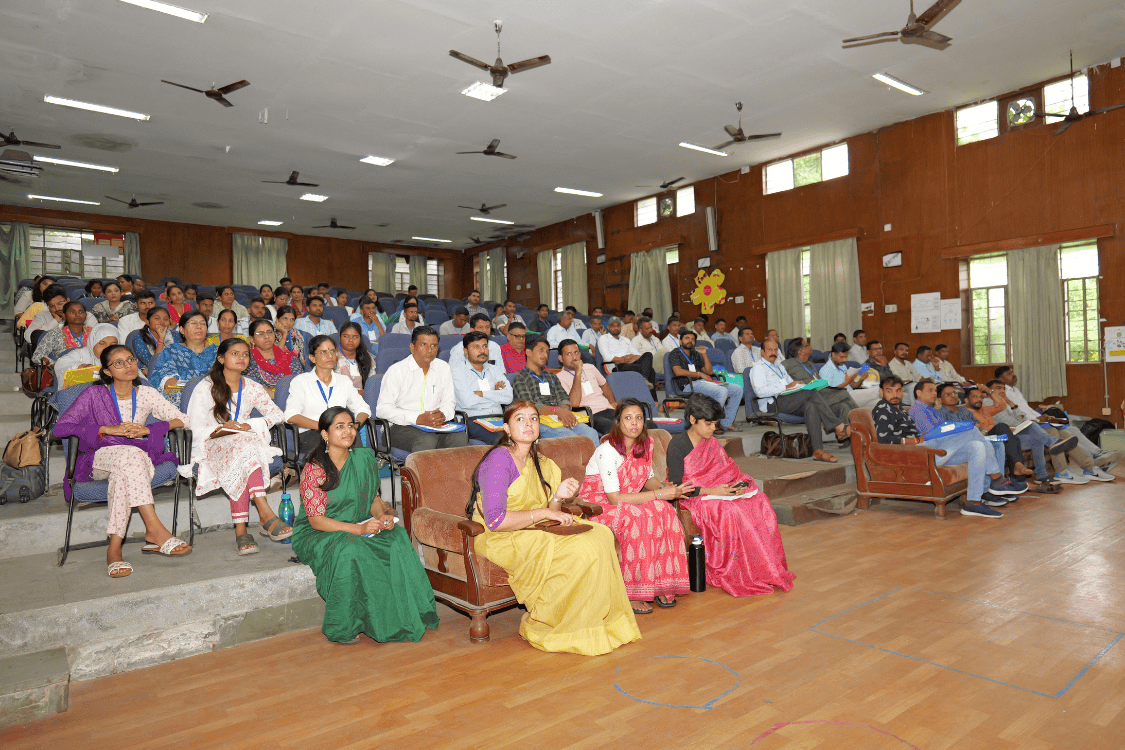
2025: Preparation for statewide scale

Through a deep and effective pilot process, feedback and results are to be integrated into the curriculum and training approach for the state’s planned implementation. Kshamtalaya and Brio will work together to develop impactful, scalable training methods and offer time-bound implementation support, starting in 2025.
What is the impact so far?
What is the impact so far?
During the 2024 pilot of 5 months with 120 teachers and 1300+ students, we focused evaluation on implementation science and children’s outcomes.
Teachers’ response
Program acceptability and feasibility for teachers: gathering pilot teacher feedback on the implementation of the program to understand whether teachers felt confident implementing the program in their classrooms, and how to improve it for scale.
• 91% Teachers found the curriculum useful
• 97% Teachers felt confident to implement the curriculum
• 96% Teachers said they started wellbeing practices in their personal life
• 84% Teachers rated quality of training as ‘excellent’
• 87% Teachers described the activities as helpful & interesting
• 31% Teachers created their own additional materials to implement a chapter in Khushi Shala Book 1, without being required.
teachers
%
teachers found the curriculum useful
%
teachers felt confident to implement the curriculum
%
teachers said they started wellbeing practices in their personal life
teachers
%
teachers found the curriculum useful
%
teachers felt confident to implement the curriculum
%
teachers said they started wellbeing practices in their personal life
Children’s response
For children, the partial implementation of the 3-year program brought about promising quantitative results.
• 53% of students improved their wellbeing with statistically significant medium effect size (cohen’s d 0.33) based on the Life Skills Assessment, a contextualized well-being measure that focuses on self-awareness, self-expression, and self-in-community skills.
• Importantly, girls showed the most improvement, with 69% improving at a medium effect size (cohen’s d 0.45). This is an extraordinary improvement for a low-cost, health promotion-based program in a classroom context.
• Teachers reported a 10-15% increase in student attendance as a result of the program, which is an exciting and unexpected outcome.
children in 60 schools
%
students improved their wellbeing
%
girls improved their wellbeing
%
reported increase in school attendance
children in 60 schools
%
students improved their wellbeing
%
girls improved their wellbeing
%
reported increase in school attendance
Importantly, quantitative data confirms the qualitative stories from teachers and students. Participating pilot teachers said this was the best training they’ve ever participated in and are eager to use the practices not just in the classroom but also for themselves and their own families. Well-being facilitators shared that they love this program and wish they grew up with it in their schools (they are from the communities of Rajasthan where the pilot is taking place).
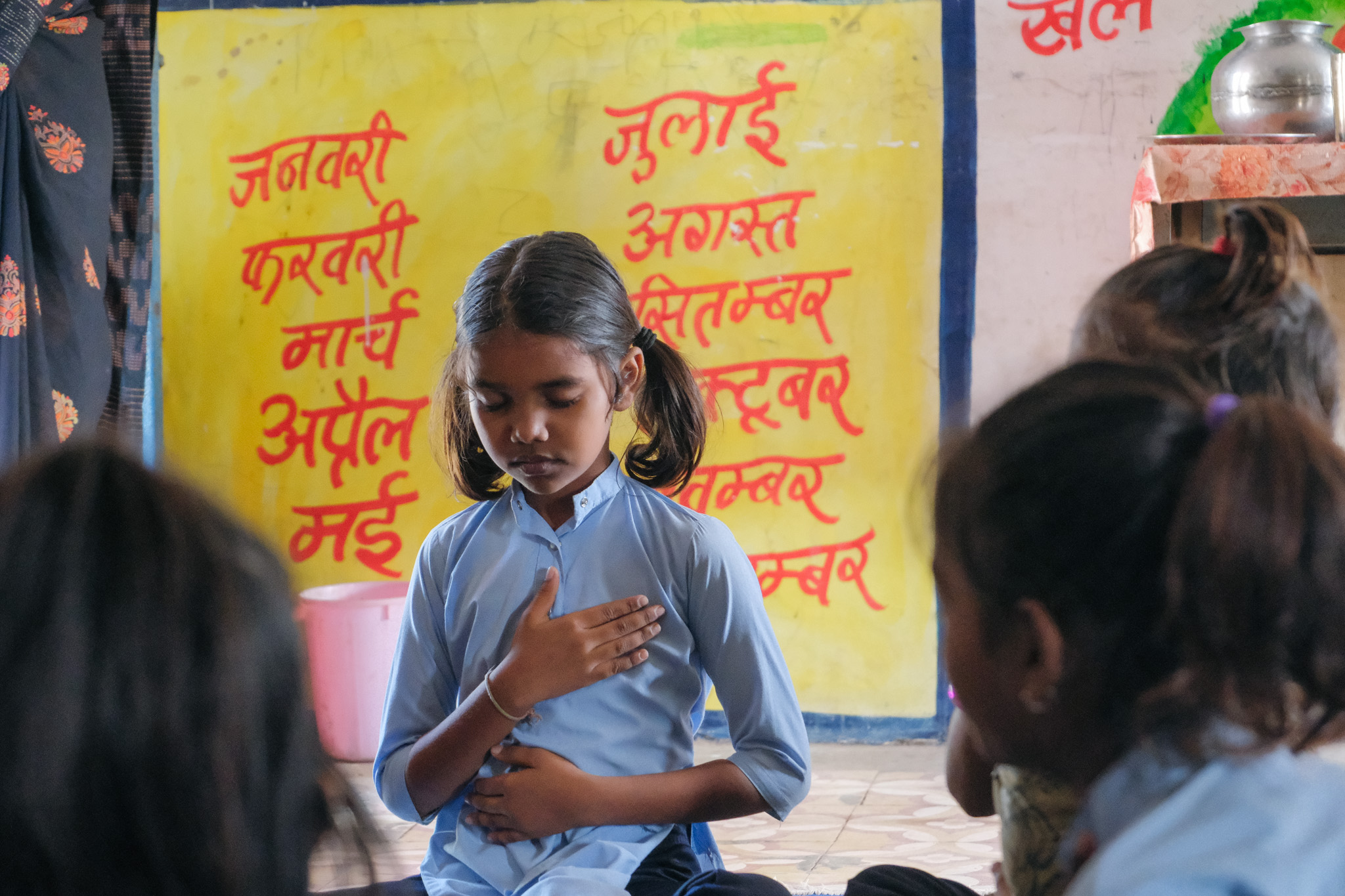
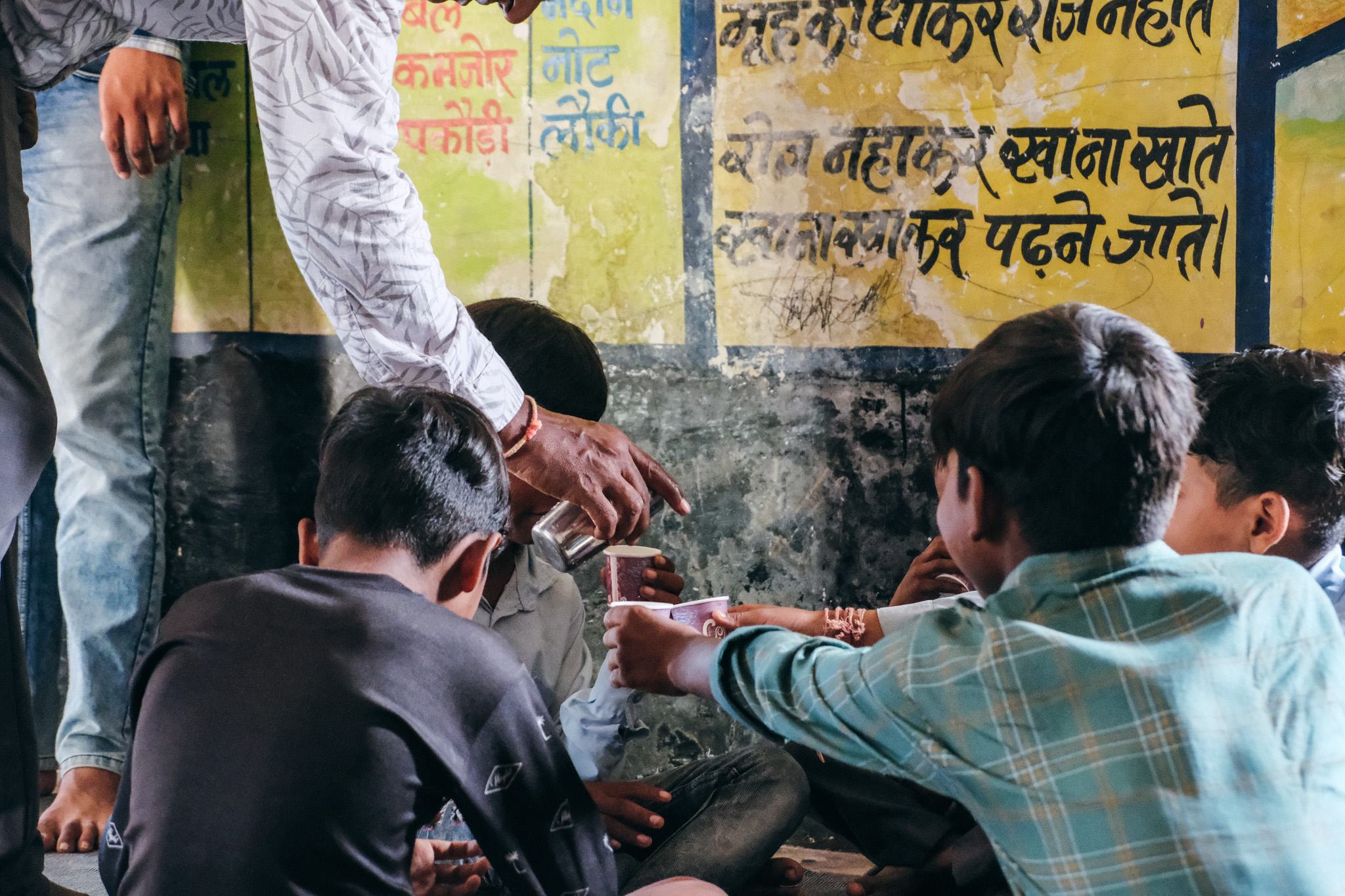


Teachers say that children are loving the program and showing signs of growth: they’re noticing their sensations, naming their emotions, and sharing their thoughts and feelings more openly in the classroom. Teachers shared that children who have experienced Khushi Shala are showing an increase in attendance (e.g. on Saturdays when there is school but few children attend) because children want to participate in well-being activities.
Children’s increased openness and attention is transferring to other classes like math and language, where children who used to be silent are asking questions and raising their hands.
When asked what she had experienced in the sessions so far, one 8-year-old student said, “I can feel my heart now!”
For me, where I work, girls usually have a shy nature. Understanding their reactions or what they are thinking was always challenging. However, after this class, I noticed that the girls are responding more, showing more interest. If they don’t like something, they now express it.
It’s very important for a teacher to know that the more discussions we encourage with children, the better we understand them. Boys tend to open up after a certain point, but with girls, it’s harder for them to build trust. They often think, “If I speak up, I’ll be mocked.”
But after these classes, a sense of confidence has emerged. Everything, in some way, is connected to sensitivity, and now they express what they like or dislike. Children also make paintings, and such activities help connect with them better. Earlier, even saying ten lines about themselves felt challenging.
After Khushi Shala, not only am I able to express myself better, but the children are also becoming more expressive. Their shyness has reduced significantly.
For me, where I work, girls usually have a shy nature. Understanding their reactions or what they are thinking was always challenging. However, after this class, I noticed that the girls are responding more, showing more interest. If they don’t like something, they now express it.
It’s very important for a teacher to know that the more discussions we encourage with children, the better we understand them. Boys tend to open up after a certain point, but with girls, it’s harder for them to build trust. They often think, “If I speak up, I’ll be mocked.”
But after these classes, a sense of confidence has emerged. Everything, in some way, is connected to sensitivity, and now they express what they like or dislike. Children also make paintings, and such activities help connect with them better. Earlier, even saying ten lines about themselves felt challenging.
After Khushi Shala, not only am I able to express myself better, but the children are also becoming more expressive. Their shyness has reduced significantly.
